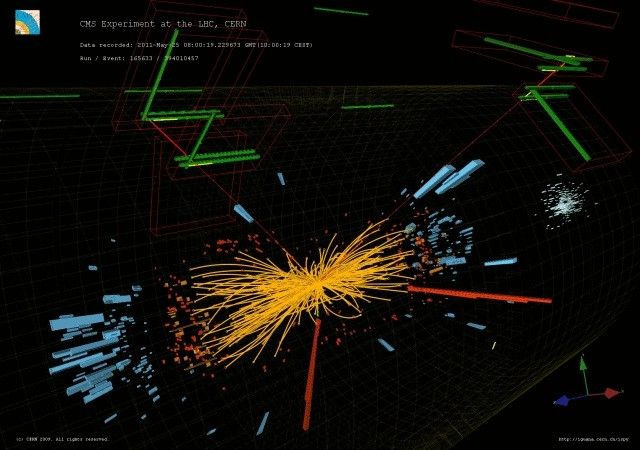Higgs Boson May Tell Us When The Universe Ends, Says Physicist

The elusive Higgs boson particle that was discovered by the Large Hadron Collider last year could unlock many of science’s most difficult questions. The mass of the Higgs boson could also hold the answer to the end of the universe, but don't worry; we've got billions of years.
Joseph Lykken, a theoretical physicist from the Fermi National Accelerator Laboratory, presented his findings on the particle at the 2013 American Association for the Advancement of Science Annual Meeting in Boston. He believes it could provide answers not only to immediate problems of physics but also the future of the universe.
The Higgs boson, also dubbed the "God particle," validates the theory of the Higgs field, an energy field that is an integral part of the universe, and as particles pass this energy field they are endowed with mass. It also validates the standard model of particle physics, such as explaining why some subatomic particles have mass, and would help explain some characteristics of the weak force.
The Higgs boson has yet to be officially confirmed to 100 percent certainty, and the data collected by the Large Hadron Collider is still being reviewed.
The mass of the Higgs boson particle is a necessary part of figuring out how the universe could, in theory, end. A force called dark energy is believed to be acting as a counter to gravity, pulling the universe apart and expanding the distance between galaxies, stars and planets.
Speaking to LiveScience, Lykken said, “It may be the universe we live in is inherently unstable, and at some point billions of years from now it's all going to get wiped out.”
The particle itself weighs approximately 126 billion electron volts (a proton weighs 1 billion electron volts), and that mass would be what’s needed to make the universe unstable, notes LiveScience. Its exact mass is another mystery because if the Higgs boson weighed slightly less or more, the universe would remain stable. Christopher Hill, another theoretical physicist who works with Lykken at the Fermi National Accelerator Laboratory, told LiveScience, “It's right along the critical line. That could either be a cosmic coincidence, or it could be that there's some physics that's causing that. That's something new, which we didn't know before.”
Luckily, this possible end of the universe would not happen for billions upon billions of years and would happen at light speed, notes Lykken.
© Copyright IBTimes 2024. All rights reserved.






















